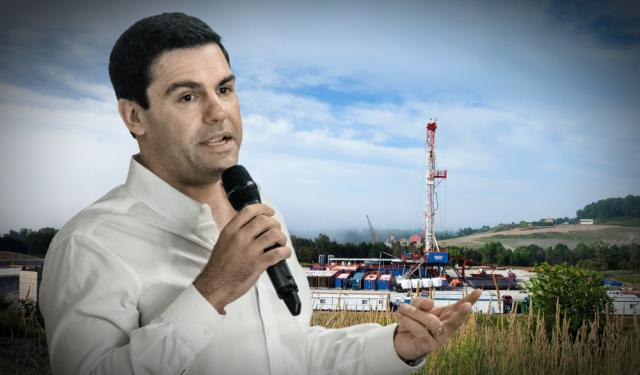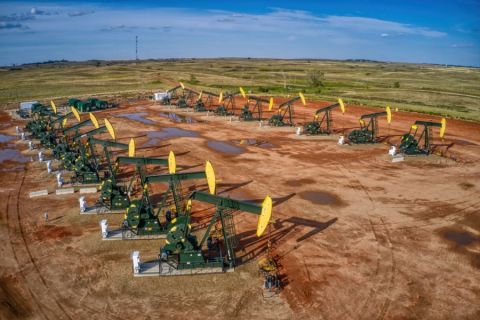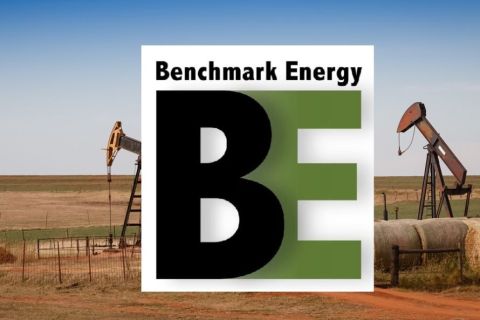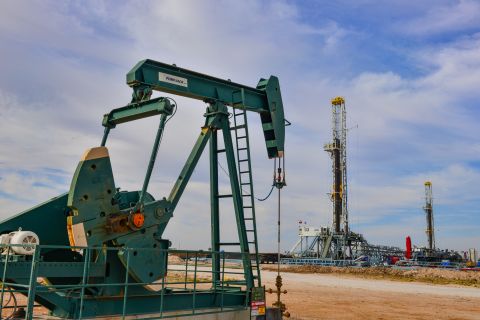
“Meeting our net-zero goals would make us one of, if not the first major producer, to reach net-zero on a Scope 1 and 2 basis,” EQT CEO Toby Rice told analysts on a June 30 call. (Source: EQT Corp.; collage by Hart Energy)
EQT Corp. pledged a $75 million investment in ESG initiatives and new technologies over the next five years along with targets to achieve net-zero by 2025 or sooner in a major push by the U.S. shale gas giant toward decarbonization.
“EQT is equipped to excel in a low-carbon future,” said Toby Rice, CEO of EQT Corp., during a conference call with Wall Street financial analysts June 30.
EQT announced targets to achieve net-zero Scope 1 and 2 greenhouse-gas (GHG) emissions in its production segment operations by or before 2025. While others in the industry have also set net-zero targets, Rice said EQT is playing a leading role in reducing emissions, which is demonstrated by its annualized GHG emission reduction percentage.
Outlining the progress the Pittsburgh-based company has already made in the past two years to limit GHG emissions, Rice said that the combination of a strong ESG foundation and modern operating model will allow EQT to act nimbly as it pushes to accelerate a sustainable pathway to a low-carbon future.
“Our methane intensity target of 0.02% is 1/10th the intensity of the 2025 target of the Oil and Gas Climate Initiative,” he said. “And our GHG emissions target is about 1/16th the average of the oil and gas industry.”
“As a result,” he said, “meeting our net-zero goals would make us one of, if not the first major producer, to reach net-zero on a Scope 1 and 2 basis.”
Additionally, EQT’s internal target for reducing GHG emissions annually is 18%, which according to the company, is higher than any of its peers in the oil and gas industry.
EQT has already begun the process to replace its natural gas-powered pneumatic devices by 2023, which Rice said were responsible for approximately 53% of EQT’s production segment Scope 1 GHG emissions in 2020. In addition, the company has built a proprietary emissions model to forecast future emissions and layer in different cost of carbon scenarios when making capital allocation decisions
Since last year, EQT also began partnering with several companies to further its methane and GHG reductions.
In January, EQT entered an agreement with Denver-based startup Project Canary to produce “responsibly sourced natural gas” from select wellpads through the use of Project Canary’s continuous methane emission monitoring devices. The company also formed a partnership with Equitable Origin and MiQ in April to certify the production of its natural gas produced from over 200 wellpads located in Pennsylvania’s Greene and Washington counties, which collectively produce approximately 4 Bcf/d.
More recently, EQT reaffirmed its commitment to reducing methane emissions on June 23 by joining the Oil & Gas Methane Partnership 2.0 Initiative.
Through these initiatives, EQT is aiming to position natural gas as a decarbonizing commodity of choice. Appalachia gas, in particular, should be valued as a premium product in the marketplace, stressed Rice during the conference call on June 30.
“We are firm believers that natural gas is an energy source that should play a leading role in the energy mix of the future,” he said.
“As the largest producer of U.S. natural gas,” he continued, “we see as our duty to maintain and enhance the potential for natural gas to play that leading role, giving policymakers and stakeholders a necessary tool to achieve our climate and human progress goals.”
EQT also outlined the company’s operational data and initiatives to improve the way it produces environmentally responsible, reliable and low-cost energy in its ESG report for calendar year 2020 released June 29.
Recommended Reading
EIA: Permian, Bakken Associated Gas Growth Pressures NatGas Producers
2024-04-18 - Near-record associated gas volumes from U.S. oil basins continue to put pressure on dry gas producers, which are curtailing output and cutting rigs.
Benchmark Closes Anadarko Deal, Hunts for More M&A
2024-04-17 - Benchmark Energy II closed a $145 million acquisition of western Anadarko Basin assets—and the company is hunting for more low-decline, mature assets to acquire.
‘Monster’ Gas: Aethon’s 16,000-foot Dive in Haynesville West
2024-04-09 - Aethon Energy’s COO described challenges in the far western Haynesville stepout, while other operators opened their books on the latest in the legacy Haynesville at Hart Energy’s DUG GAS+ Conference and Expo in Shreveport, Louisiana.
Mighty Midland Still Beckons Dealmakers
2024-04-05 - The Midland Basin is the center of U.S. oil drilling activity. But only those with the biggest balance sheets can afford to buy in the basin's core, following a historic consolidation trend.




